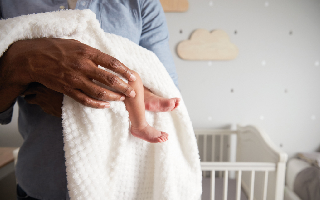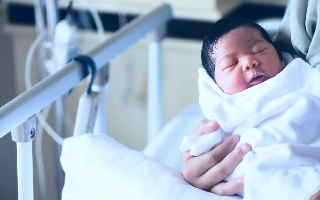
- No win. No fee.
- No hidden costs
- 100% risk-free, only pay if you win
- Home >
- Insights >
- Birth Injuries >
- Cerebral Palsy – What difference will compensation make?
About the Author
Tami Frankel
Medical Negligence Solicitor and Partner - LLB (Hons) University College London
Read more about Tami »Sadly, it is impossible to turn back the clock after an act of medical negligence. While we cannot change the past, we can help you to obtain compensation that will substantially improve the future.
The purpose of compensation is to put the injured person into the position which they should have been in had the negligence not occurred. In the case of a child with Cerebral Palsy, this means providing the financial support to allow the claimant’s needs to be met for life. This is often a real worry for parents, who fear what may happen as they age and become unable to care for the child.
In cases of Cerebral Palsy, the role of compensation is critical. The compensation they receive following a successful claim will ensure that they, and their parents and siblings, can live fulfilling and positive lives. It will help them with the essentials, but also with accessing activities and sports which might otherwise be barred to them.
But how exactly does compensation make a difference following a Cerebral Palsy claim? Here we will outline exactly what that compensation can purchase in order to give those affected the best quality of life possible.
Cerebral Palsy describes a group of conditions caused by an injury to the developing brain of a baby, which can occur before, during, or shortly after delivery. Approximately 1 in 400 babies born in the UK is diagnosed with this condition. It is not a progressive condition and it cannot be cured.
The symptoms vary greatly between claimants and depend upon both the area of the brain affected and the extent of that injury. Cerebral Palsy is a neurological injury and so typically affects a person’s movement, coordination and posture. This means that they are likely to have problems with mobility and motor control. There may or may not be learning difficulties or developmental delay, as well as possible problems with swallowing and communication.
Often, the injury to a baby’s brain development is the result of a reduction in the supply of oxygen or blood while they are in the womb. Other causes of Cerebral Palsy include:
- The baby suffering a stroke
- The mother contracting an infection such as chickenpox or rubella during pregnancy
- A temporary lack of oxygen during or after birth
- A head injury suffered during or after birth
- The newborn contracting meningitis or other infection
It is possible for any of these to result from the negligent actions or inactions of medical professionals responsible for the care of both mother and baby during pregnancy and delivery.
Although Cerebral Palsy is a non-progressive condition (meaning it does not worsen with age), the severity of the brain injury may have a dramatic impact on the child’s motor, educational and psychological development.
Among the possible implications of a Cerebral Palsy diagnosis are:
- Problems with mobility, which may mean that aids and equipment such as AFOs, walkers or a wheelchair are required
- Difficulty with communication
- Pain caused by problems resulting from abnormal postures such as contractures, skin breakdown and scoliosis
- Difficulty with swallow which can present problems with taking in nourishment orally or mean difficulty dealing with secretions, both of which must be addressed
- Learning difficulties
- Hearing impairment or deafness
- Visual impairment or blindness
- Behavioural difficulties and emotional problems
- Increased risk of epilepsy
- Abnormalities of the spine or hip
- Reduced or absent bladder or bowel control
The combination of symptoms suffered by each child will vary as will the severity of those symptoms. The range is from someone who attends a mainstream school and is able to access work and normal activities with very little by way of assistance or aids, to someone who is unable to do anything for themself and requires 24-hour care.
However, it should not be overlooked that Cerebral Palsy not only affects the child, but also the parents, siblings, other family members and friends. These people will also have their lives altered dramatically in order to provide the care and support that the child needs.
Now we have seen the potentially far-reaching and long-lasting impact that Cerebral Palsy can have on a child and their loved ones, how does compensation make a definitive and positive difference?
If you make a successful Cerebral Palsy claim following the negligence of a medical professional, the compensation awarded can be applied in a variety of ways to ensure the continued wellbeing of the child and also the family by targeting their specific needs.
Where compensation makes the difference
Accommodation
Problems with mobility may mean that in order for them to access areas of the home, and in order for them to be provided with optimal care, either adaptations must be made to the family home or, more usually, a new home purchased and specifically adapted. This can include:
- The introduction of a lift or stairlift
- The building of a proper wet room and toileting facilities
- Installation of a hoist system
- A garage which is large enough to ensure safe access in all weathers for the child and any equipment to be carried out in a sheltered environment
- Landscaping to allow garden access and use
- Additional bedrooms to house a live-in carer
- The introduction of ramps and other supports for ease of movement in the home
- Sufficient storage space for equipment and supplies
- Sufficient space for any other children in the home so they are not overcrowded
Equipment
Each child with Cerebral Palsy is different. However, many will require equipment such as a wheelchair, assistive technology, special seating, footwear and more in order to improve and maximise their daily quality of life. Compensation facilitates the purchase of these items, maintenance and replacements that need to be made over time.
Care support
Providing care to a child with Cerebral Palsy day after day is time-consuming and tiring. It can leave parents with little time for work, play or other siblings. Compensation allows the family to pay professional carers to provide some or all of that care. While it may be that parents are happy providing some care, many are worried that they will become less able to do this as they get older. Professional carers may live-in or out, or be a mix of the two.
Thus compensation will pay for the care needed to be provided by trusted carers. This will allow the rest of the family more freedom and also the opportunity to spend time with the child carrying out fun activities.
Therapies and treatments
In order to maximise mobility and minimise any pain or discomfort, a child with Cerebral Palsy may be recommended to undergo various treatments and therapies, including:
- Physiotherapy
- Speech and language therapy (for both communication and swallowing)
- Corrective surgeries such as for hip dislocations or scoliosis
In addition, the child might benefit from the support of an Occupational Therapist or Educational Psychologist. Their roles are to encourage self-esteem and independent living for the person affected by Cerebral Palsy, as well as suggest what careers may be possible and how they can realise their potential.
Loss of earnings
The child will be entitled to claim for the salary which they would have been able to earn. Furthermore, parents or others who have lost salary in order to provide care to the child will be reimbursed for the free care that they have provided in the past, and they can be paid for care to be provided in the future.
Deputyship costs
Once compensation has been agreed or awarded by a Judge, the Court of Protection will appoint a Deputy. A Deputy is responsible for managing the award and ensuring that it is spent properly to meet the child's needs. Although it is possible for this role to be taken by a parent, guardian or another family, it is a particularly onerous and technical role that is often carried out by a professional Deputy.
There are various costs that are incurred by a Deputy and a professional Deputy will also charge a fee.
As you can see, the impact that compensation can have on both the person affected by Cerebral Palsy and their family may be completely life-changing.
It is important to remember that most families with a child with Cerebral Palsy are regular people, working throughout the week and living in standard accommodation. This means that the additional needs of a child with Cerebral Palsy are very difficult for them to meet, although most families do an absolutely fantastic job and are completely dedicated.
An award of compensation means that the family can stop worrying about the future. They now have the ability to obtain suitable accommodation, pay for necessary therapies, aids and equipment and to pay for professional care for their child.
The secured income provides reassurance and comfort to the parents, guardians and wider family of the claimant, that they will continue to be looked after even when family members may no longer be able to provide the care themselves.
The fact of having suitable living accommodation, access to therapies, aids and equipment together with the help provided by professional carers also improves life for the family.
Overall, compensation helps to guarantee the maximum benefit to the injured person, while simultaneously ensuring that there is minimum impact on other members of the household.
Once a Cerebral Palsy claim is made, the medical negligence solicitor will collaborate with various specialists to determine the medical status of the claimant and what equipment, renovations, therapies and more will be required to best support them moving forward so that the cost of this can be calculated.
To do this the solicitor will need to:
- Obtain a report from a paediatric neurologist that will set out the child's current condition and prognosis for the future
- Obtain any other necessary medical reports which may be needed in order to determine what the child needs now and may require in the future, such as from an orthopaedic surgeon
- Obtain a report from a care expert which will calculate the free care provided by the parents and then consider what would be a proper care regime for the future
- Obtain reports from therapists such as a physiotherapist, a speech and language therapist and an occupational therapist who will consider what treatments and therapies the child will require now and in the future
- Obtain an accommodation report from an architect which will set out what accommodation is required to meet the needs detailed in the various reports and then look at how that goal can be achieved. This is often via the purchase of a property which then requires adaptation
- Obtain a report from an educational psychologist. This will help to determine what the child is likely to have earned and also what they are now able to do – whether by way of sheltered work, volunteering or hobbies
These various costs are then placed into a schedule, which will set out both the initial purchase costs and the ongoing costs of maintenance and replacement.
Once figures have been agreed between the parties, or a court has determined how much the claimant is to receive, the award will be split. There will be an initial lump sum and then annual payments, known as periodical payments, to cover the yearly costs of care and therapies. This ensures that the child’s needs will be covered for life.
The use of periodical payments is designed to benefit both parties. Parents can be reassured that their child will continue to be cared for even after they are unable to do so anymore, and defendants can be sure that the payments are made for as long as needed but no longer.
The consequences of a Cerebral Palsy diagnosis can be life-changing for an individual and their loved ones. As this article has demonstrated, the compensation that you receive following a successful Cerebral Palsy claim is critical to minimising the impact and empowering those affected to make their lives as straightforward and fulfilling as possible.
To give yourself the best possibility of achieving a successful claim that secures your future, and that of your child, speak to our team at Gadsby Wicks. Our specialist medical negligence solicitors give your claim all the attention it needs to determine the amount of compensation you deserve, and build watertight cases to ensure you are granted the maximum amount possible.
Get in touch with us today so we can pursue your right to justice.
Disclaimer
All content contained within this article is meant for general information only – this should not be treated as a substitute for medical advice from your doctor or another healthcare provider. If you require legal advice specific to your situation, please contact our team directly.
Gadsby Wicks is not liable for any diagnosis made from the content of this article, nor does it endorse any service or external site linked to within the article.
Always consult your GP if you are concerned about your health and wellbeing, or speak to us if you require legal advice.




